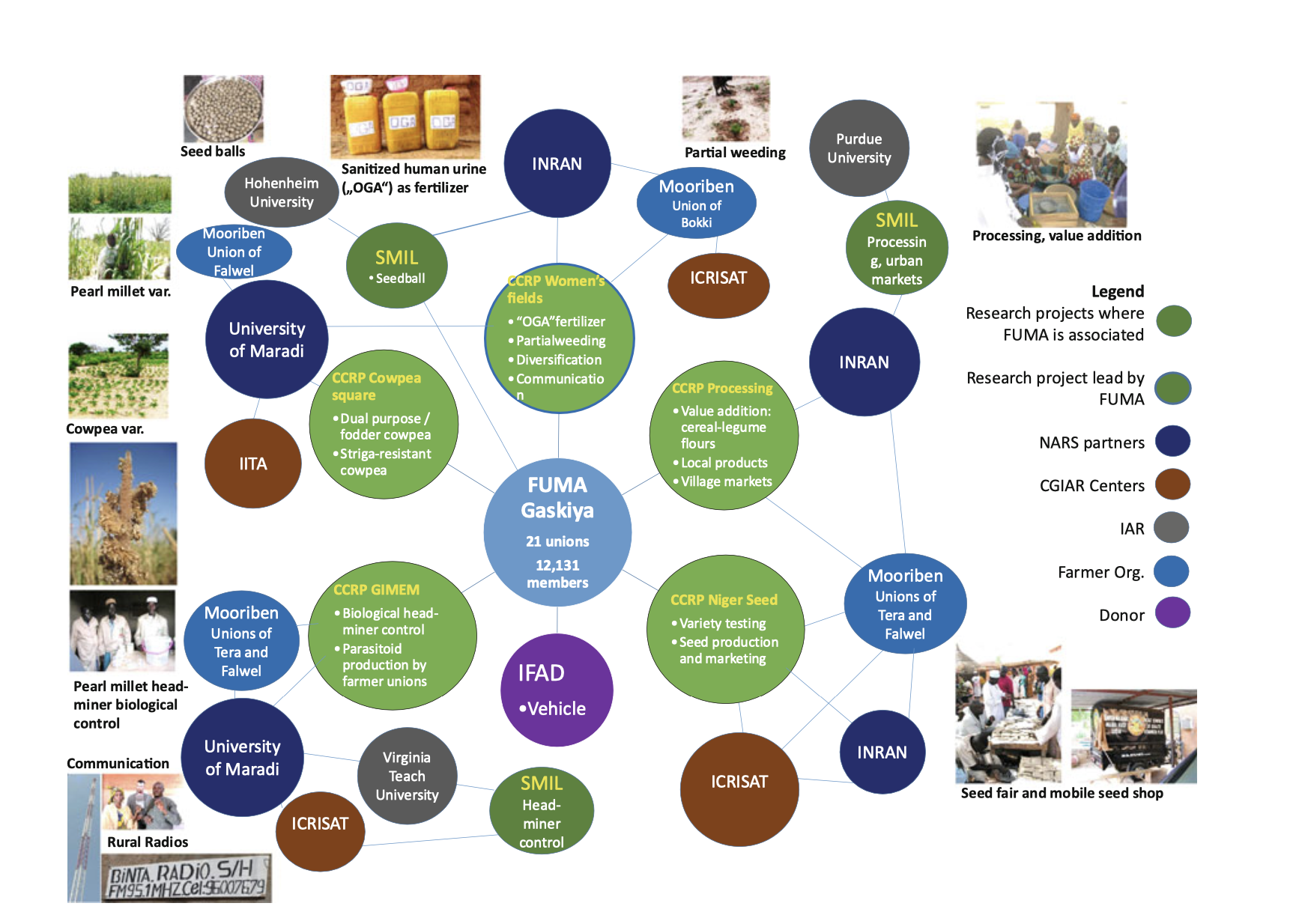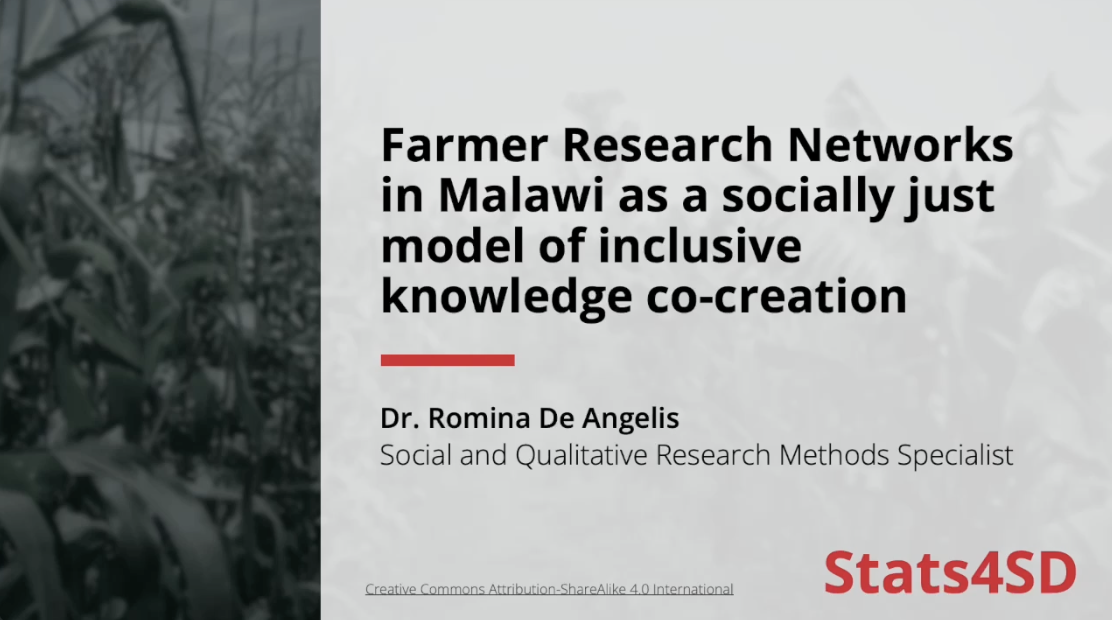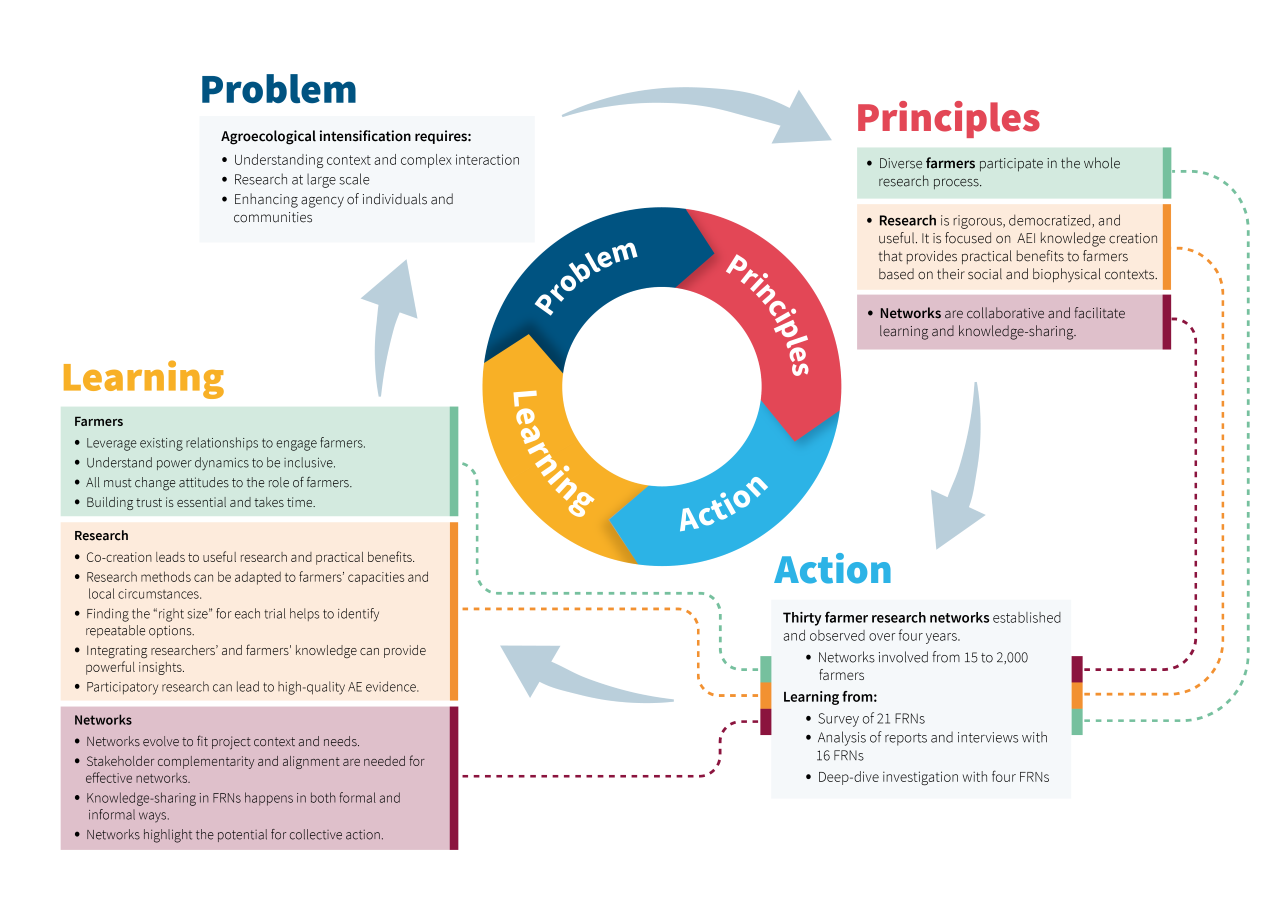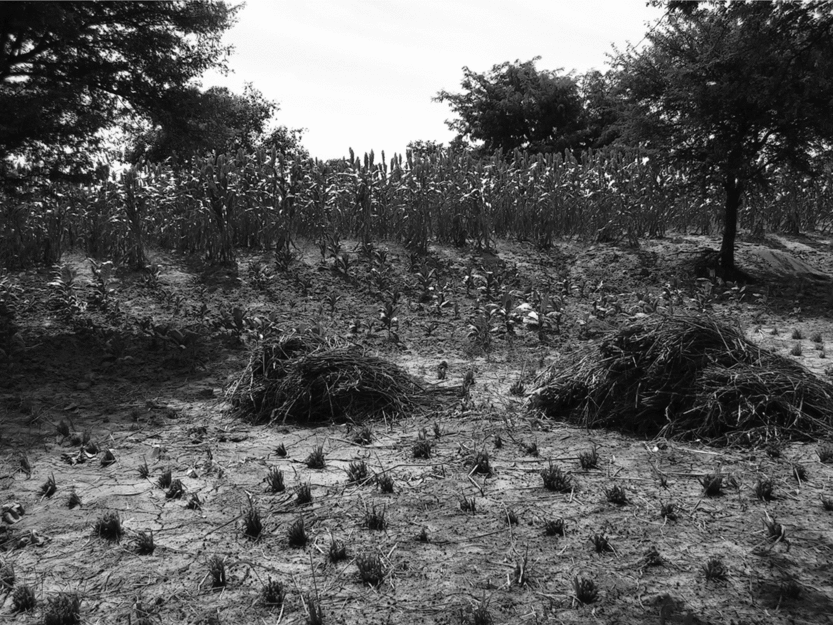
Available Languages:

Available Languages:
Dated: January 2021
Authors: Ali Maman Aminou , Eva Weltzien , Katrien Descheemaeker , Ric Coe , Bettina Haussmann , Mary Richardson , Batamaka Somé
This is a chapter from the book, 'Sorghum in the 21st Century: Food – Fodder – Feed – Fuel for a Rapidly Changing World', which gives an overview and examples of the farmer research network (FRN) approach in action. It provides a good introduction to FRNs and summarises some lessons learned from CRFS's (then CCRP) work with smallholder farmers and FRNs.
Abstract:
The Collaborative Crop Research Program (CCRP) of the McKnight Foundation supports collaborative agroecological systems research and knowledge sharing that strengthen the capacities of smallholder farmers, research institutions, and development organizations. The program is experimenting with a Farmer Research Network (FRN) approach, which aims to transform the agriculture and food systems by fostering context-specific agroecological intensification (AEI); care for culture, production ecology, and equity; and improve yields, nutrition, and sustainability. In addition, the FRN approach aims to transform the way that much of agricultural research and development is done: It promotes research as part of development, farmer influence on what is being worked on, more equitable relations, and a move from blanket recommendations to support farmers’ understanding of agroecological principles and better decision-making. The approach is based on three main FRN principles:
Farmers who represent the social and biophysical diversity of their communities participate in the whole research process.
Research is rigorous, democratized, and useful, providing practical benefits to farmers as well as scientific evidence and insights on biophysical and social variation.
Networks foster collaboration and opportunities for learning and knowledge sharing.
In our general FRN model, there is an entity that facilitates the collaborative network of farmer organization(s), NGOs and development projects, researchers/research institutions, and the private sector whenever possible. In this network, local knowledge, infrastructure, and social capital are combined with global scientific knowledge and innovations, and both enrich each other.
This chapter gives concrete examples for FRNs from CCRP’s West Africa community of practice. In these FRNs, high levels of farmer participation and relatively large scales of operations are being combined, which makes the approach distinct from conventional agricultural research and from classical participatory research approaches. With the FRN approach, CCRP is trying to foster a paradigm change: Research should consider smallholder farmers as valuable research partners and no longer as “beneficiaries” or “passive adopters” of so-called “best-bet” technologies developed by researchers. The FRN approach encourages researchers to stop thinking about making recommendations and rather start thinking about supporting farmers in making choices to tackle the key issues they face.
The individual components of the trove are listed below. Click on one to download the file or go to the external url. You can download the full trove below as a .zip file.
Haussmann-et-al-2020-FRNs-and-sorghum.pdf
680 KB

Video
Farmer Research Networks in Malawi as a socially just model of inclusive knowledge co-creation
This is a recording of a presentation which was originally given by Dr Romina De Angelis at the UKFIET confere...

Journal Article
Farmer research networks in principle and practice
A paper, published in the International Journal of Agricultural Sustainability, giving an overview of the Col...

Journal Article
Farmer research networks as a strategy for matching diverse options and contexts in smallholder agriculture
This paper gives a summary of – and makes a case for – some of CRFS's (then CCRP) key focuses in their work wi...